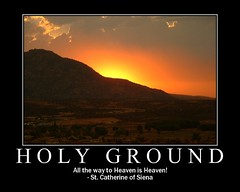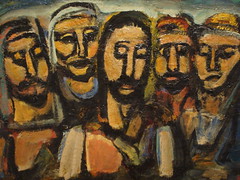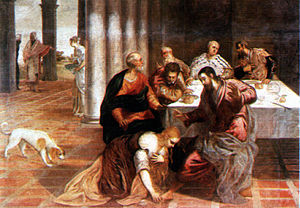 Image via Wikipedia
Image via Wikipedia
This is part of a series of posts based on the Churches Together in England publication one light: one world. If you click on the link you will find the biblical texts. This post of the same name covers the purpose of this series.
Ephesians 4: 2 - 6
The author emphasises unity. There is one body, one spirit, one hope of your calling, one Lord, one faith, one baptism, one God and Father of all.
From a 21st century perspective there are two ways of understanding this.
We could read it as saying there is one way of understanding scripture and the various takes on Christianity are in error. Some traditions would claim they represent this one way and all the others fall short of being the one true church. Others might think all traditions fall short. If so, the task is to negotiate our way to agreement about the one way.
The second way of reading this is to affirm all traditions as parts of the one church. No tradition alone is the one church but together the traditions are the one church. Whilst this is the most attractive to me, I know I need to exercise caution. Even where the lines I draw are intended to be inclusive, they are still lines. The question as ever is who is not included; who is marginalised by human schemes and human structures?
On the one hand I could argue traditions that self identify as non-Christian faiths do not know the one way. Alternatively I could argue all faiths participate to some degree. The problem then becomes to what degree do they need to participate? What about those we do not generally recognise as Christian but originate from Christianity, eg Seventh Day Adventism, Mormonism or Unitarianism?
This passage can be read exclusively and clearly the author intends this meaning because he is building up the communities reading this letter. Or it can be read inclusively, seeing the Christian traditions (which did not exist at the time the letter was written) as a single way. Taking either approach to extreme can lead us into making absurd claims.




















Recent Comments